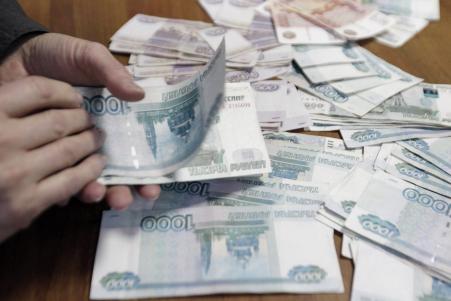By Kukil Bora -

As expected earlier, the Russian finance ministry has begun selling its currency reserves to save ruble, which it argues is considerably undervalued, the government announced Wednesday.
The latest move comes after the Bank of Russia, the country’s central bank, decided to increase its key interest rate to 17 percent, up from 10.5 percent, to boost ruble. The currency has fallen 20 percent since the start of the week and more than 50 percent this year.
“The Russian Finance Ministry believes the ruble is extremely undervalued and has begun selling its currency reserves on the market,” the Russian finance ministry said in a statement, obtained by Ria Novosti, a Russia-based news agency.
Russia has reportedly spent about $80 billion in an unsuccessful move to stabilize the ruble, which is now trading at about 66 to the dollar. The currency breached the 64.00 level for the first time on Monday.
Meanwhile, Vladimir Chistyukhin, a deputy governor of the central bank, has said that an investigation into a possible manipulation on the foreign exchange market has been launched. Chistyukhin also stated that the bank is not likely to introduce a mechanism to suspend trading on the market if there are sharp moves in the currency exchange rate, The Guardian reported.
BANK OF RUSSIA STARTS PROBES ON FX MARKET MANIPULATION
— Jonathan Ferro (@FerroTV) December 17, 2014
Russian Prime Minister Dmitry Medvedev also reportedly said that no capital controls are required to regulate the currency market, adding that Russia has currency resources to overcome the ruble crisis.
Medvedev (almost) says no capital controls: ""There is no point in introducing extremely strict regulation... That does not help anyone."
— Jack Farchy (@jfarchy) December 17, 2014
On Wednesday, the European Commission (EC) also expressed its concerns over Russia’s struggling economy.
“We are all watching the economic developments in Russia with concern,” an EC official was quoted by Reuters as saying in Berlin. “No one has an interest in Russia falling into a deep depression.”
